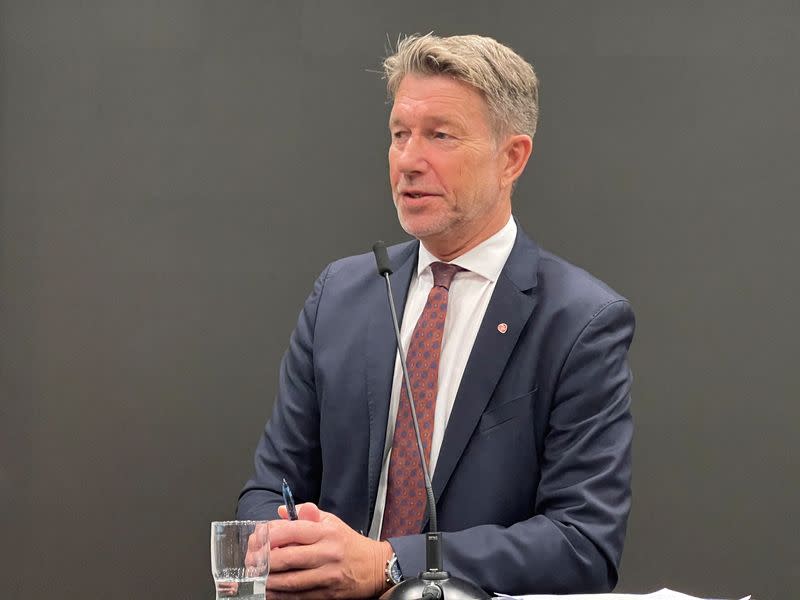Norway keen to explore hydropower, carbon capture storage projects in Indonesia

By Florence Tan
SINGAPORE (Reuters) - Norway is seeking to form a stronger partnership with Indonesia and explore investment opportunities in renewable energy such as hydropower, and carbon capture and storage, the energy minister said.
"A lot of opportunities are there, and there are some hurdles, but I hope we can build a stronger partnership in years to come," Energy Minister Terje Aasland told Reuters late on Thursday after meeting his counterpart Arifin Tasrif in Jakarta earlier this week.
While Norway aims to achieve net-zero greenhouse gas emissions by 2050, it also continues to explore and develop new oil and gas fields, including in the Arctic's Barents Sea, to maintain output that is expected to peak in 2025.
The country became Europe's largest supplier of natural gas after a sharp reduction in Russian deliveries since the start of the war in Ukraine in 2022.
Norwegian companies can contribute their experience in hydropower and carbon capture and storage (CCS) in Indonesia to reduce emissions in the country, Aasland said.
Storage capacity at Norway's first CCS project Northern Lights will be ready this year, and is on track to start capturing carbon dioxide from a cement plant in Brevik next May, he said.
Aasland met representatives from Norwegian firms in Singapore on Thursday including Equinor, DNB and Yarra, which are investing in renewables, energy storage and alternative fuels such as ammonia in Asia Pacific.
Norway, which is western Europe's largest oil and gas producer, generates a total output of just over 4 million barrels of oil equivalents per day (boepd).
Norwegian gas supplies to Europe is expected to reach 120 billion cubic metres (bcm) this year, Aasland said, up from 109 bcm in 2023.
"Oil and gas will also play a crucial role in the coming decades because of the needs to energy security and affordable prices," Aasland said, adding that the country needs to secure supply chain for green transition.
Norway aims to give exploration permits for seabed mining in the Arctic region next year, hoping to extract minerals needed for solar panels, wind turbines and electric car batteries needed to replace fossil fuel energy, although the plan faces opposition from environmental groups and some European countries.
"Today we depend on Russia and China so we have to diversify the value chain for minerals in the coming years and we are looking into how we can develop the activity in the Norwegian Continental Shelf in a sustainable manner," Aasland added.
(Reporting by Florence Tan; additional reporting by Nora Buli in Oslo; Editing by Sherry Jacob-Phillips)

 Yahoo Finance
Yahoo Finance 